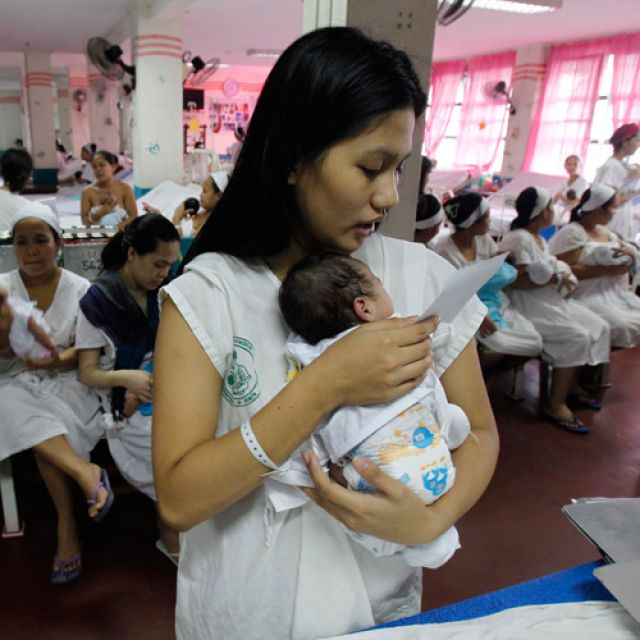as a family planning method, despite fierce opposition by Catholic bishops and religious groups.
The two chambers must meet in conference committee to iron out the differences in the legislation, which had been in the works for 14 years. They were expected to have a bill to President Benigno Aquino III before Christmas.
The Catholic Church had lobbied against the legislation, and, before the Senate voted Dec. 17, the bishops issued a statement that said the bill could harm the nation.
"Contraception corrupts the soul," said the statement signed by the conference vice president, Archbishop Socrates Villegas of Lingayen-Dagupan.
He said the legislation was being "gift-wrapped to look like a gift for maternal health care. It is not so. It will lead to greater crimes against women."
The legislation seeks to integrate the government's responsible parenthood and family planning efforts into all of its anti-poverty and development programs. It requires sex education in high school. It also categorizes all products and supplies for modern family planning as "essential," meaning they must be available at all hospitals and clinics.
Supporters of the bishop say it will make family-planning tools available to poor women.
Archbishop Villegas said the poor "can rise from their misery through more accessible education, better hospitals and less government corruption."


